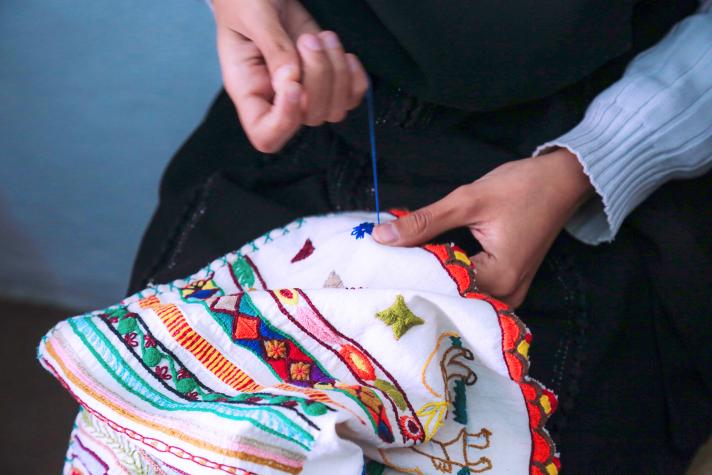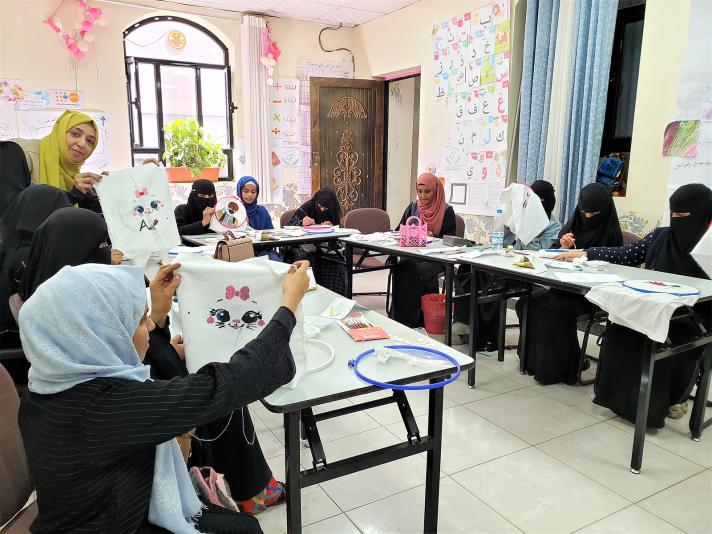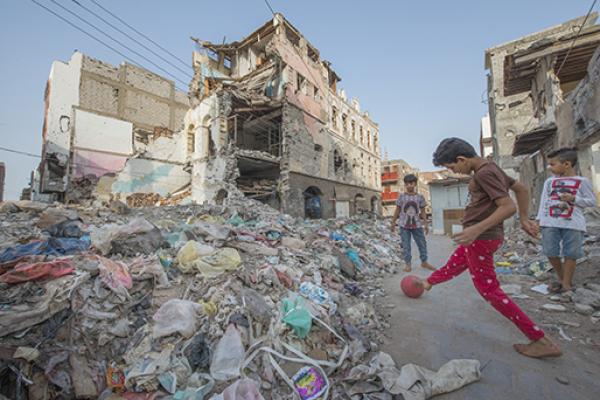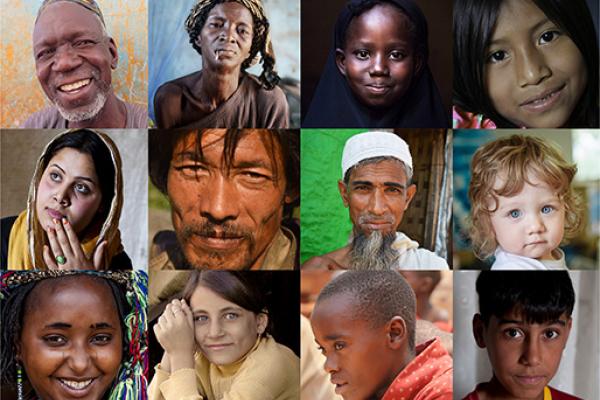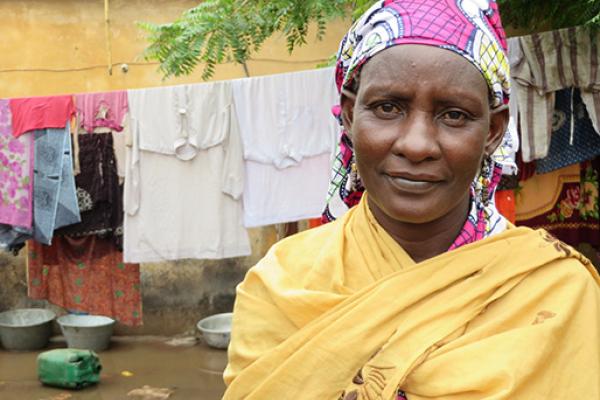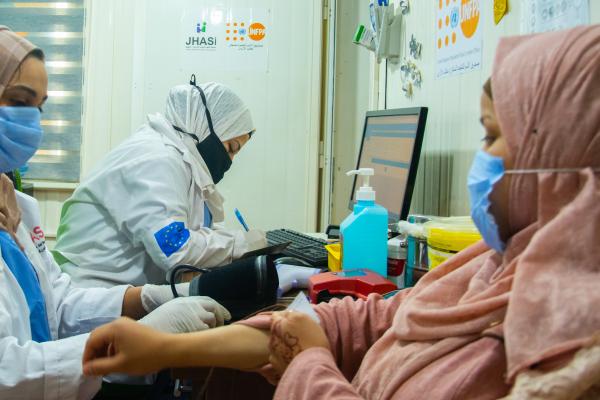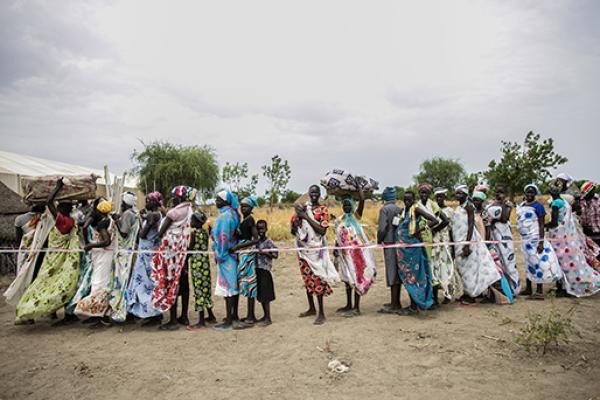Rehman* was married off to an abusive man at age 15. “During our year of marriage, I lived a very hard life full of violence and abuse,” she says now living as a displaced person in the governorate of Hajjah.
She learned about a safe space for women and girls at her displacement camp supported by the UN’s Population Fund (UNFPA) with EU humanitarian funding. Here, Rehman found the assistance and empowerment she needed.
Child marriage is a coping mechanism that alarming numbers of Yemeni parents have turned to as they deal with ever-growing levels of precarity.
With the country’s grinding conflict passing its 8-year mark, families face mass displacements, a devastating economic crisis, and the collapse of many vital social services and protection systems. Today, nearly 2/3 of girls in Yemen are married before the age of 18.
But for Rehman, marriage did not secure long-term support or stability. Instead, as she and her husband fled the violence of war, she also endured the violence of her husband.
Relief, ironically, came in the form of abandonment: “My husband decided to divorce me, saying he couldn’t afford to provide food for me after our displacement,” she says.
Conditions in Yemen are only worsening, with restrictions on women’s and girls’ freedom tightening in many places.
In parts of Yemen’s North, women can no longer work independently due to the mahram system that requires women to have a male guardian to travel.
Gender discrimination costs lives
Today, an estimated 12.6 million women need life-saving reproductive health and protection services.
About 3/4 of the 4.5 million people displaced in Yemen are women and children, and women head approximately 26% of displaced households.
Yet discriminatory gender norms continue to hamper the ability of women to support themselves and their families.
In the case of the mahram system, the restrictive measures limit the participation of women humanitarians in delivering aid. This severely impacts access to the most vulnerable, especially women and girls.
Rehman learned about a safe space for women and girls at her displacement camp that UNFPA supports with EU humanitarian funding.
EU-funded protection services include safe havens and referral services, and livelihood skills training. These actions empower women to support themselves and their families.
At the safe space, she received cash assistance and was referred to a health facility. “I am beginning to feel better,” she says. “Soon, I will enrol in a livelihood support programme at the safe space to learn a skill and start a new life free from violence and abuse.”
An estimated 7.1 million women in Yemen require urgent access to services that prevent and address gender-based violence, yet these services are extremely limited or completely absent in some places.
Reaching millions of girls and women
With the country’s health system in tatters, Yemen has one of the highest maternal death rates in the region. 1 Yemeni woman dies in childbirth every 2 hours from preventable causes.
25-year-old Somaya* from Taizz came close to being one of those women. She was 6 months pregnant when her husband cast her and their 5 children out of their home.
To support the children, Somaya took a job doing farm work – hard manual labour that caused her health to deteriorate.
A doctor diagnosed complications during her pregnancy and advised her to visit a women’s and girls’ safe space for support. There, she got financial support to receive obstetric care.
Sadly, the pregnancy ended in a stillbirth, but Somaya was able to receive the medical and psychosocial care she needed to recover. “I no longer have feelings of extreme sadness and anxiety,” she says.
The obstetric care that likely saved Somaya’s life is widely unavailable in Yemen. Fewer than half of births are assisted by skilled medical personnel, and only 1 in 5 of the health facilities that remain provide maternal and child health services.
The EU’s humanitarian aid has continued to support UNFPA over many years as the agency is the sole provider of life-saving reproductive health medicines in Yemen.
Despite humanitarian operations in Yemen being persistently underfunded with health facilities at risk of closing, with the support of the EU and other donors, UNFPA was able to reach more than 2.7 million women and girls in 2022.
*Names changed for privacy and protection
Story by the United Nations Population Fund (UNFPA).
Publication date: 26/03/2023

